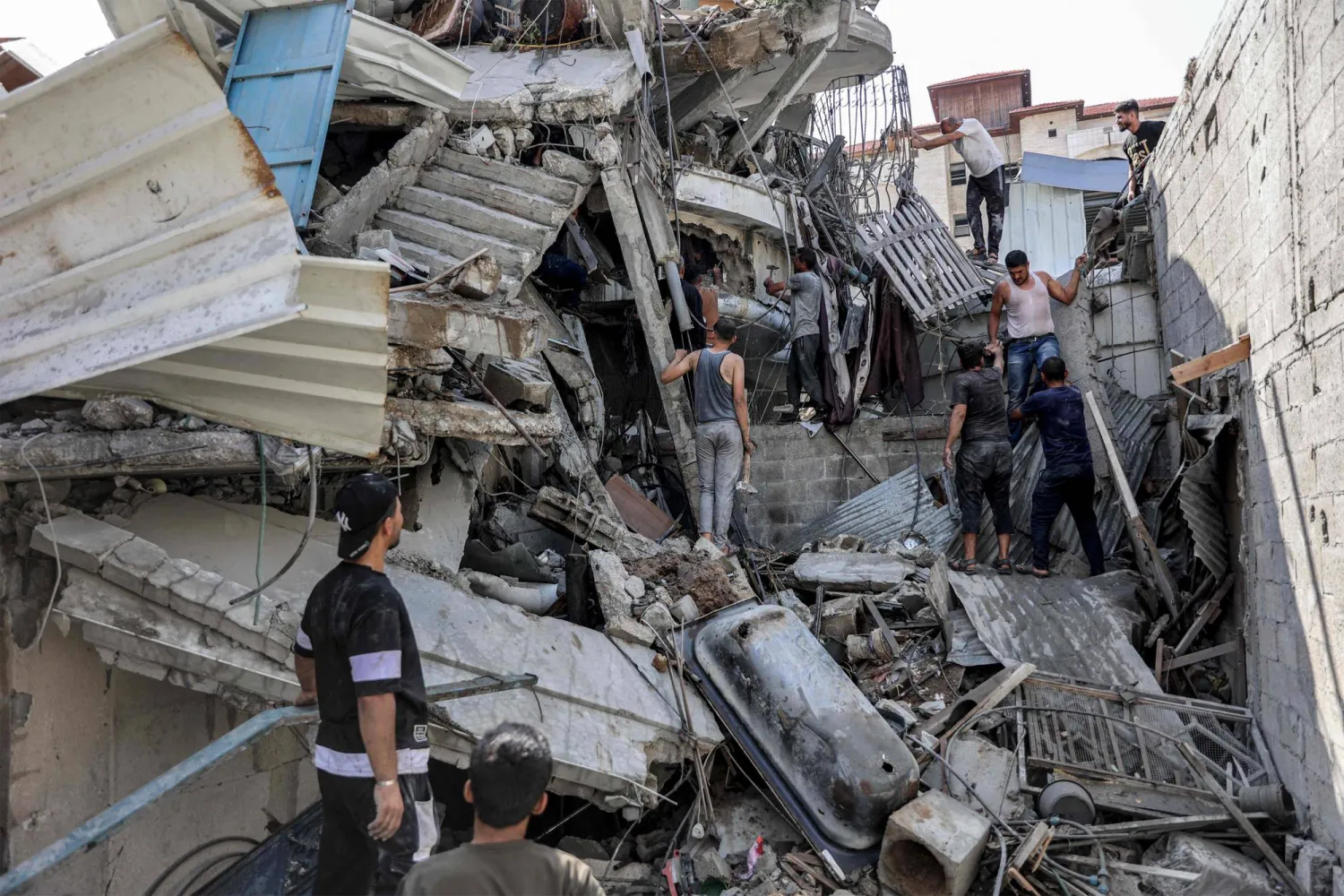The Israeli military said on Friday it sent another army unit to support its forces operating in Jabalia, the largest of Gaza's eight historic refugee camps, where residents said tanks blew up roads and houses as they thrust further into the territory.
Residents of Jabalia in northern Gaza said Israeli tanks had reached the heart of the camp, using heavy air and ground fire, after pushing through suburbs and residential districts, Reuters reported.
They added that the Israeli army was destroying dozens of houses on a daily basis, sometimes from the air and the ground and by placing bombs in buildings then detonating them remotely.
The Israeli military said its forces, which have been operating in Jabalia for the past two weeks, killed dozens of militants in close-quarters combat on Thursday and carried out aerial strikes and dismantled military infrastructure.
The escalation of Israel's Jabalia operation came a day after it said it had killed the country's number one enemy, Yahya Sinwar, Hamas's chief, whom it blamed for ordering the Oct 7 attack on Israel, the deadliest in the history of the Israeli-Palestinian conflict.
Israeli military says its operation in Jabalia is intended to stop Hamas fighters from regrouping for more attacks.
Residents said Israeli forces had effectively isolated the far northern Gazan towns of Beit Hanoun, Jabalia, and Beit Lahiya from Gaza City, blocking movement except for those families heeding evacuation orders and leaving the three towns.
Israel Sends More Troops into North Gaza, Deepens Raid

People gather outside a collapsed building as they attempt to extricate a man from underneath the rubble following Israeli bombardment in the Saftawi district in Jabalia in the northern Gaza Strip on October 15, 2024 amid the ongoing war in the Palestinian territory between Israel and Hamas. (Photo by Omar AL-QATTAA / AFP)

Israel Sends More Troops into North Gaza, Deepens Raid

People gather outside a collapsed building as they attempt to extricate a man from underneath the rubble following Israeli bombardment in the Saftawi district in Jabalia in the northern Gaza Strip on October 15, 2024 amid the ongoing war in the Palestinian territory between Israel and Hamas. (Photo by Omar AL-QATTAA / AFP)
لم تشترك بعد
انشئ حساباً خاصاً بك لتحصل على أخبار مخصصة لك ولتتمتع بخاصية حفظ المقالات وتتلقى نشراتنا البريدية المتنوعة







